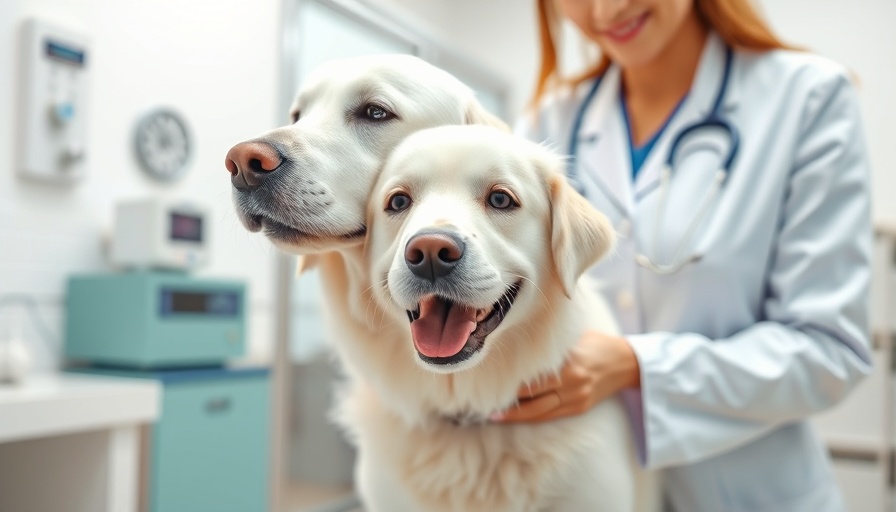
Why Dog Obesity is a Growing Concern for Pet Parents
The rise of obesity in dogs is alarming, with studies showing that 59% of dogs in the U.S. are classified as overweight or obese. Just like in humans, excess weight in dogs can lead to serious health issues such as diabetes, heart disease, and joint problems, ultimately affecting their quality of life and longevity. As responsible pet parents, it is crucial to address this growing concern through proper weight management strategies.
The Importance of a Veterinary-Approved Diet
Consulting your veterinarian is the first step in helping your dog shed unwanted pounds. A vet-recommended diet is specifically formulated to assist in weight loss by being lower in calories yet high in fiber, thus supporting digestive health while keeping your dog feeling full. Your veterinarian will be able to determine which diet is best for your dog and monitor their progress.
Understanding Caloric Intake
Monitoring caloric intake is essential in your dog’s weight loss journey. Accurately measuring food portions with a scale and being mindful of high-calorie treats are key factors. It's important to consult your vet to establish a daily calorie limit that promotes gradual, healthy weight loss without depriving your furry friend of vital nutrients.
The Role of Supplements in Weight Management
In addition to diet and exercise, consider incorporating a weight management supplement. Products like Zesty Paws Vet Strength Weight Management Bites can help your dog feel fuller while also providing essential vitamins and minerals. Always discuss with your vet before beginning any supplement to ensure it complements your dog's diet.
Exercise: A Vital Component of Weight Loss
Regular exercise is not just beneficial but essential for weight loss in dogs. Aim for brisk walks or engaging playtime to stimulate calorie burning and muscle maintenance. Remember that exercise should be increased gradually, especially for dogs that may have been less active. Incorporate fun activities that keep your dog mentally stimulated, such as puzzle feeders or games of fetch.
Tracking Progress and Adjusting Plans
Creating a structured weight loss plan and tracking your dog’s progress is important to ensure they are losing weight healthily. Regular check-ins with your veterinarian will help adjust dietary needs and exercise levels, reinforcing accountability as you work towards achieving the ideal weight for your pet.
Paving the Way for Future Pet Health
As advancements in veterinary medicine continue to grow, so does the hope for innovative solutions to combat pet obesity. Companies are already developing weight-loss treatments similar to those designed for humans, demonstrating the importance of addressing this condition at every opportunity. Until then, prioritizing nutrition and physical activity remains fundamental for dog owners seeking to improve their pet's health.
Conclusion: Every Step Counts
Helping your dog lose weight is a collaborative effort that involves commitment, support from your veterinary team, and a love for your pet's well-being. Starting with the right diet, careful management of calories, strategic exercise, and supplements can dramatically transform your dog's health. Let's take proactive steps together to ensure our beloved pets lead long, vibrant lives!
 Add Row
Add Row  Add
Add 




 Add Row
Add Row  Add
Add 

